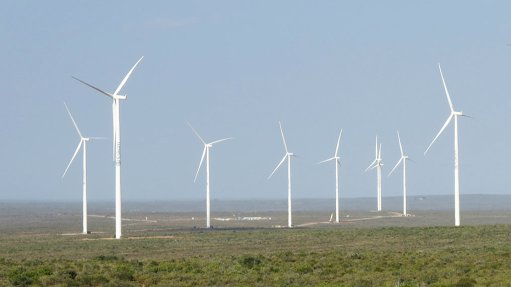Averagely corrupt
There you have it: South Africa is averagely corrupt. Well, it’s apparently so in comparison with the rest of the world. So, on average, South Africa is seemingly fine. The obvious question is: Just how corrupt is the world? To answer this question, one would need to consider the definition of corruption.
Transparency International (TI) defines corruption as “the abuse of entrusted power for private gain”. It goes on to state that “corruption erodes trust, weakens democracy, hampers economic development and further exacerbates inequality, poverty, social division and the environmental crisis” and that “exposing corruption and holding the corrupt to account can only happen if we understand the way corruption works and the systems that enable it”.
Corruption can take many forms, including behaviours such as public servants demanding or taking money or favours in exchange for services; politicians misusing public money or granting public jobs or contracts to their sponsors, friends and families; and corporations bribing officials to get lucrative deals.
In an article published in 2011, Anup Shah writes: “Corruption is both a major cause and a result of poverty around the world. It occurs at all levels of society, from local and national government, civil society, judicial functions, large and small businesses, military, and other services and so on.” For his part, Pope Francis says “corruption is paid by the poor”.
Talking about poverty, in South Africa about 18.2-million people lived in extreme poverty in 2022, with the poverty threshold being R32.68 daily. Khanyi Mlaba dealt with this issue in a December 2020 article titled ‘One in five South Africans are living in extreme Poverty: UN’ when she wrote: “Meanwhile, the country’s wealthiest 10% own more than half the national income.” The report she cited was ‘The United Nations Human Development Report’.
Returning to South Africa’s ‘average’ performance – the country has slipped on TI’s The Corruption Perception Index, which ranks 180 countries and territories by their perceived levels of public-sector corruption, defined as “the abuse of entrusted power for private gain”.
South Africa had a score of 43 on a scale of 0 to 100, where 0 is highly corrupt and 100 is very clean, using data from 13 external resources reflecting the views of country experts and surveys of businesspeople. The global average of 43 has remained just that for the past 11 years, with two-thirds of countries scoring below 50. In the latest ranking, South Africa returned to where it was in 2012.
Sub-Saharan Africa, with an average score of 33, is the most corrupt region, while the five-member Southern African Customs Union has an average score of 43, which, concerningly, places South Africa firmly in the middle of the class, as Botswana has a score of 55, Lesotho 38, Namibia 49, and eSwatini 32.
In the 16-member Southern African Development Community, with an average score of 37, South Africa is ranked fifth, with Angola having a score of 29, Botswana 55, Comoros 20, the Democratic Republic of Congo 21, eSwatini 32, Lesotho 38, Madagascar 26, Malawi 35, Mauritius 54, Mozambique 26, Namibia 49, Seychelles 70, Tanzania 39, Zambia 33, and Zimbabwe 23.
In the class of its largest trading partner, the European Union, with a 64 average, South Africa places last with Hungary – Austria (74), Belgium (73), Bulgaria (42), Croatia (47), Cyprus (53), Czech Republic (54), Denmark (88) Rank 1, Estonia (74), Finland (88) Rank 1, France (71), Germany (80), Greece (49), Ireland (74), Italy (56), Latvia (59), Lithuania (61), Luxembourg (81), Malta (54), the Netherlands (82), Poland (56), Portugal (62), Romania (45), Slovakia (52), Slovenia (57), Spain (61), and Sweden (85).
Does South Africa place first in any of its trade blocs? What about BRICS? Well, Brazil has a score of 38, Russia 29, India 40, and China 45. So, no.
Article Enquiry
Email Article
Save Article
Feedback
To advertise email advertising@creamermedia.co.za or click here
Announcements
What's On
Subscribe to improve your user experience...
Option 1 (equivalent of R125 a month):
Receive a weekly copy of Creamer Media's Engineering News & Mining Weekly magazine
(print copy for those in South Africa and e-magazine for those outside of South Africa)
Receive daily email newsletters
Access to full search results
Access archive of magazine back copies
Access to Projects in Progress
Access to ONE Research Report of your choice in PDF format
Option 2 (equivalent of R375 a month):
All benefits from Option 1
PLUS
Access to Creamer Media's Research Channel Africa for ALL Research Reports, in PDF format, on various industrial and mining sectors
including Electricity; Water; Energy Transition; Hydrogen; Roads, Rail and Ports; Coal; Gold; Platinum; Battery Metals; etc.
Already a subscriber?
Forgotten your password?
Receive weekly copy of Creamer Media's Engineering News & Mining Weekly magazine (print copy for those in South Africa and e-magazine for those outside of South Africa)
➕
Recieve daily email newsletters
➕
Access to full search results
➕
Access archive of magazine back copies
➕
Access to Projects in Progress
➕
Access to ONE Research Report of your choice in PDF format
RESEARCH CHANNEL AFRICA
R4500 (equivalent of R375 a month)
SUBSCRIBEAll benefits from Option 1
➕
Access to Creamer Media's Research Channel Africa for ALL Research Reports on various industrial and mining sectors, in PDF format, including on:
Electricity
➕
Water
➕
Energy Transition
➕
Hydrogen
➕
Roads, Rail and Ports
➕
Coal
➕
Gold
➕
Platinum
➕
Battery Metals
➕
etc.
Receive all benefits from Option 1 or Option 2 delivered to numerous people at your company
➕
Multiple User names and Passwords for simultaneous log-ins
➕
Intranet integration access to all in your organisation

















